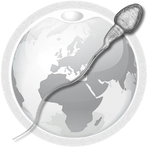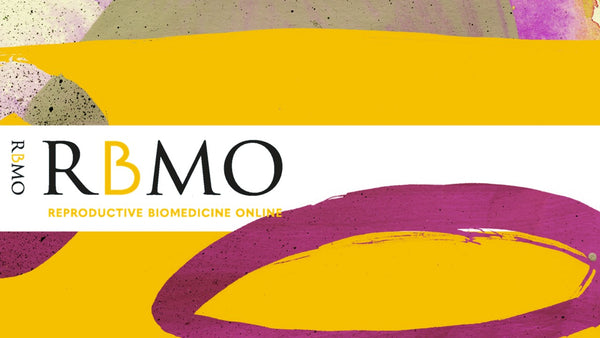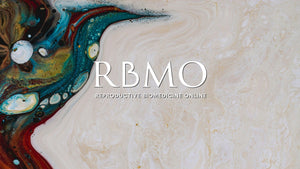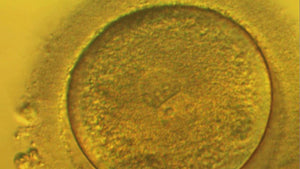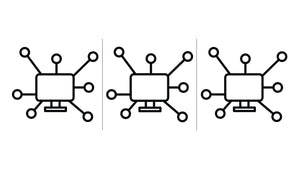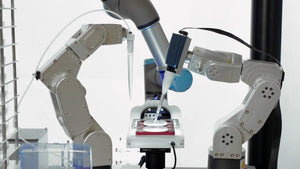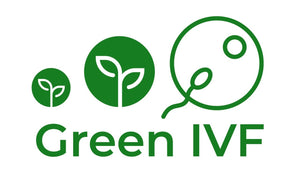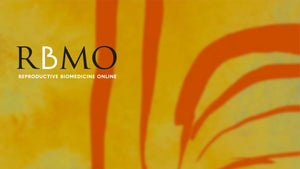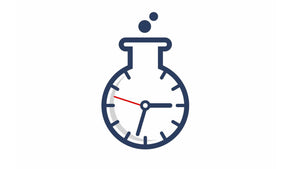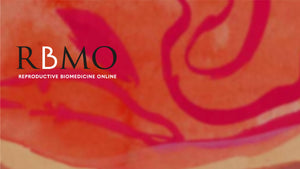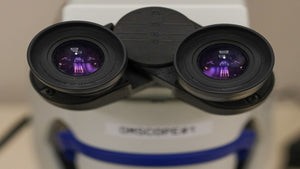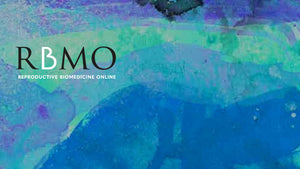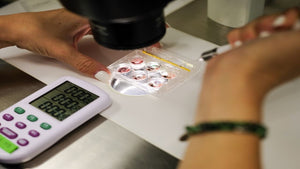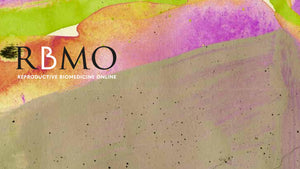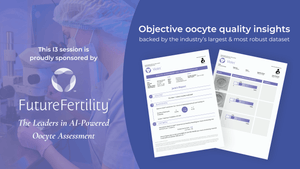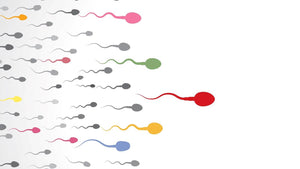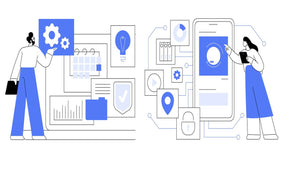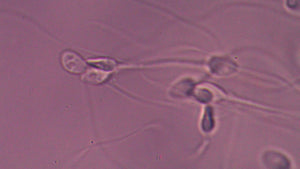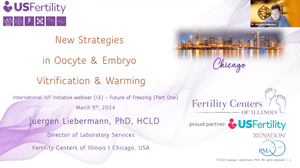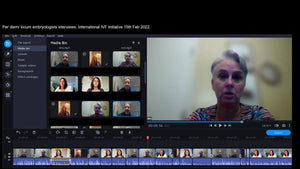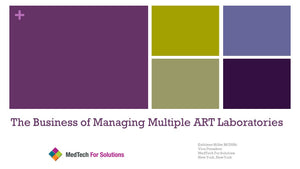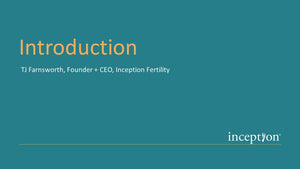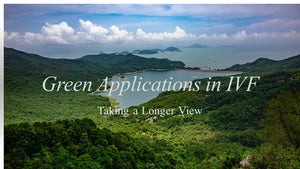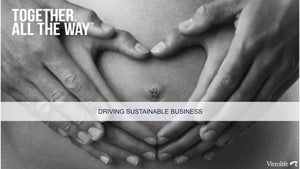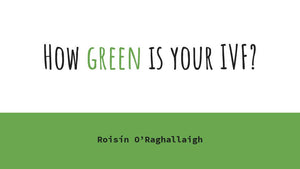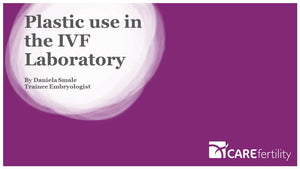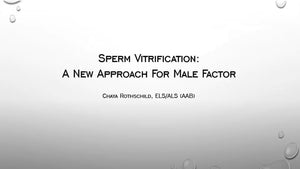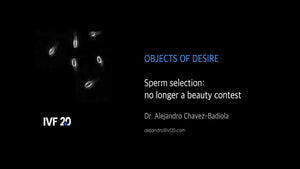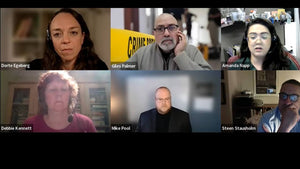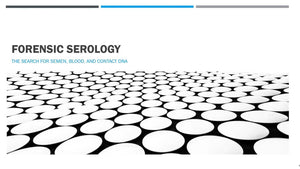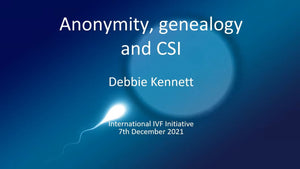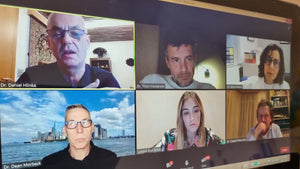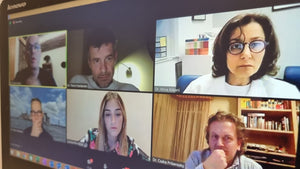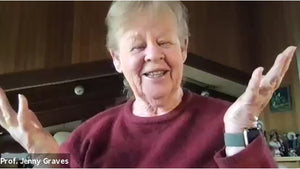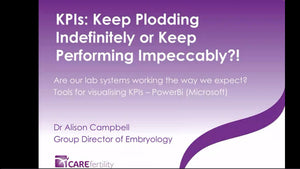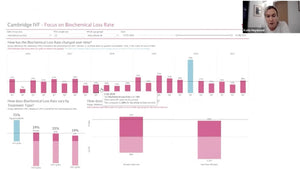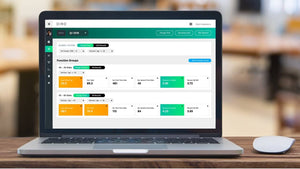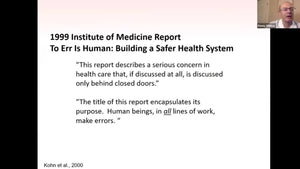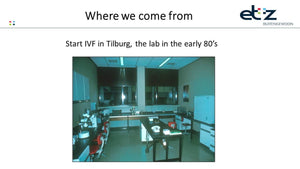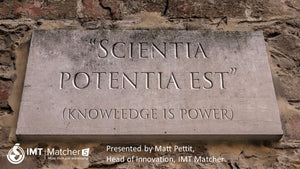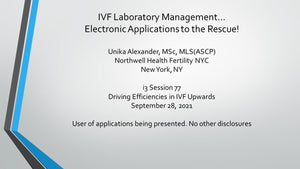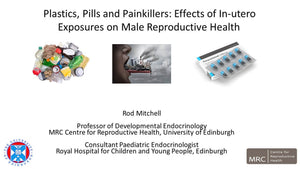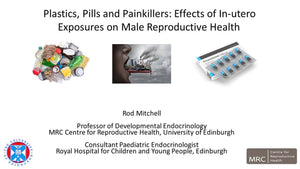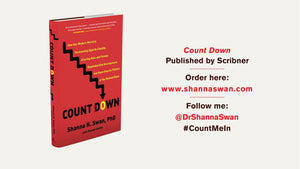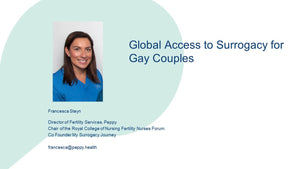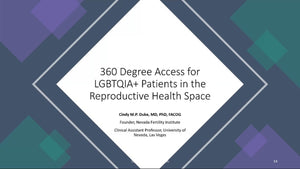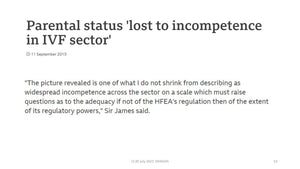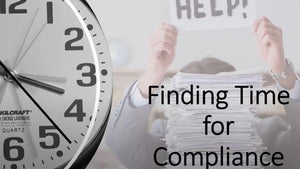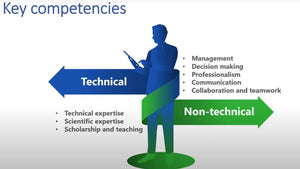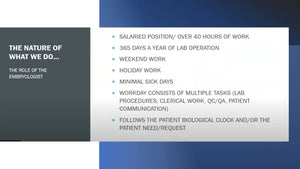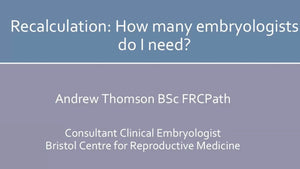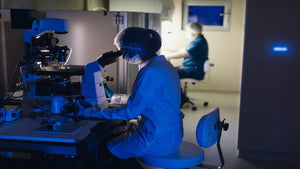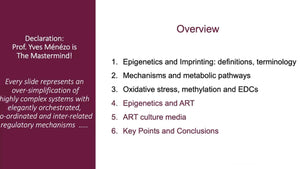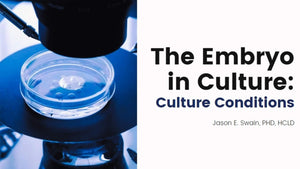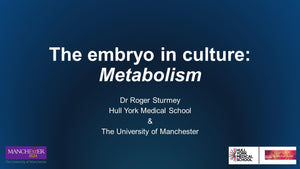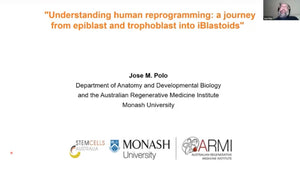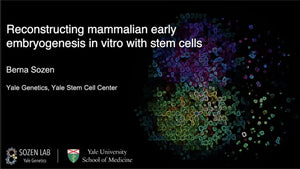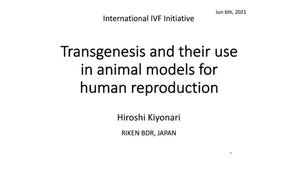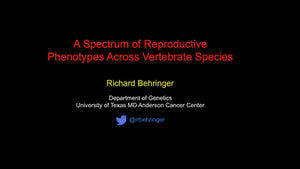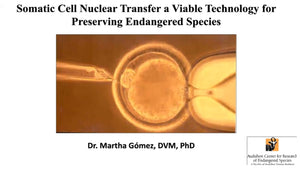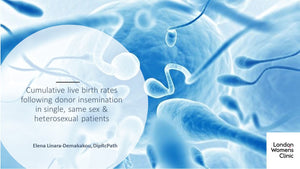Session 96: RBMO VI

Donate
At the International IVF Initiative, we are committed to providing free access to our educational sessions, webinars, and resources for professionals and individuals passionate about advancing reproductive medicine. We believe that cost should never be a barrier to knowledge and collaboration. By contributing, you’re ensuring that valuable educational resources, expert insights, and collaborative opportunities remain open to all without financial barriers. Together, we can continue to foster a global community dedicated to innovation and excellence in the field of IVF.
Your Donation
Thank you!
Session 96: RBMO VI
Tuesday, 7th June at 3pm EST, 8pm UK, 9pm CET
Description: International IVF Initiative I3- Online Session, RBMO LIVE – June 7, 2022
Course outline/synopsis:
Regular quarterly webinar for the journal Reproductive Biomedicine Online (RBMO) showcasing selected papers and research projects from the journal, with group discussion and audience Q&A. RBMO is a leading international journal devoted to biomedical research on human conception and the welfare of the human embryo. The journal currently has an Impact Factor of 3.828, and is ranked in the 1st Quartile of both Obstetrics & Gynecology and Reproductive biology categories of the Web of Science.
This session was moderated by RBMO Senior Editor Nick Macklon and Section Editor Jacky Boivin, highlighting progress and innovations with mobile and lifestyle technologies, with authors from the Reproduction, Technology and Society section of the journal.
The session was divided into a spotlight presentation, three speed sessions and group discussion. All sections invited audience questions, to be addressed to the presenters and panel.
The headline talk was Prof. Alice Domar and Alison Meyers discussing recent review paper, ‘Research-Supported Mobile Applications and Internet-Based Technologies to Mediate the Psychological Effects of Infertility: A Review’, highlighting the trends in mobile and web-based technologies to decrease emotional distress in individuals with infertility.
The speed sessions featured Dr Eri Maeda presenting her paper ‘Promoting fertility awareness and preconception health using a chatbot: A randomized controlled trial’. Ka Ying Bonnie Ng, with the finding of a recent RCT study into the effects of lifestyle coaching apps on behaviours in women with subfertility or recurrent miscarriage, and Prof. Joyce Harper presenting her recent work and RBMO paper on fertility tracking apps and their ability to offer women useful information about their fertile window.
Finally, all presenters joined a panel discussion, together with the moderators to expand on the themes of the talks and respond to questions from the audience.
Tuesday, 7th June at 3pm EST, 8pm UK, 9pm CET
Reproduction, Technology and Society
Moderators:
Prof. Nick Macklon and Prof. Jacky Boivin
Main Lecture:
Research-supported mobile applications and internet-based technologies to mediate the psychological effects of infertility: A review
Prof. Alice D Domar with Alison Meyers
Speed sessions:
Smartphone based lifestyle coaching modifies behaviours in women with subfertility or recurrent miscarriage: An RCT
Dr. Ka Ying Bonnie Ng
Promoting fertility awareness and preconception health using a chatbot: A randomized controlled trial
Dr. Eri Maeda
Do fertility tracking apps offer women useful information about their fertile window?
Prof. Joyce Harper
Discussion:
Liquid expectations- what can patients and clinics expect from technological advances?
PROF ALICE DOMAR
 Alice “Ali” Domar, Ph.D, is a health psychologist who focuses on the application of mind/body medicine to women's health issues. Her research focuses on the relationship between stress and infertility, with a focus on the impact of cognitive behavioral interventions as well as access to care and patient retention. She is also a practicing psychologist and does individual, couples, and group therapy.
Alice “Ali” Domar, Ph.D, is a health psychologist who focuses on the application of mind/body medicine to women's health issues. Her research focuses on the relationship between stress and infertility, with a focus on the impact of cognitive behavioral interventions as well as access to care and patient retention. She is also a practicing psychologist and does individual, couples, and group therapy.
She is the Chief Compassion Officer at Inception, a senior staff psychologist in the department of obstetrics and gynecology at Beth Israel Deaconess Medical Center, and an associate professor of obstetrics, gynecology, and reproductive biology, part-time, at Harvard Medical School. She is a past-chair of the mental health professional group of ASRM.
Dr. Domar is on the board for Parents Magazine and served ten years on the board of Resolve, the National Infertility Association. She is the narrator of the DVD’s “Stress and Relaxation Explained” and “Infertility Explained”. She is the author of seven books, including “Conquering Infertility” and the co-creator of the apps FertiCalm and FertiStrong. She is an editor for a new textbook: “Patient-Centered Assisted Reproduction: How to Integrate Exceptional Care with Cutting-Edge Technology”, Cambridge University Press (Domar AD, Sakkas D, Toth,T), 2020. She is also the co-host of the new podcast “Dear Infertility: Finding Calm When Trying is Trying”.
ALISON MEYERS
 Alison Meyers is from Rochester, NY and recently graduated Summa Cum Laude from Middlebury College with a degree in Neuroscience in 2021.
Alison Meyers is from Rochester, NY and recently graduated Summa Cum Laude from Middlebury College with a degree in Neuroscience in 2021. Her research experience includes genetic knockout in pediatric neuroblastoma using CRISPR technology, neurodevelopment and embryology research investigating G-protein-coupled receptors and cell-signaling, and clinical research into the psychology of infertility with Dr. Domar.
With Dr. Domar, she helped compose several manuscripts and textbook chapters. She learned a lot about the field of reproductive endocrinology/infertility, how infertility impacts mental, emotional, and psychological health, and methods to mediate these effects. She couldn’t be more grateful for her experience working with Dr. Domar.
Currently, she is working as a Study Facilitator/Assistant Coordinator at Rochester Clinical Research where she is helping conduct more than 25 Phase-3 vaccine research studies with most pertaining to COVID-19 vaccines.
Her intention is to go to medical school where she is interested in reproductive endocrinology/infertility. She is currently in the application process and hopes to matriculate in the Fall of 2023.
KA YING BONNIE NG
 Bonnie Ng is an MRC clinical research fellow at the University of Southampton.
Bonnie Ng is an MRC clinical research fellow at the University of Southampton.Bonnie has an interest in research into the intrauterine environment and periconceptional care for women with reproductive failures. She is part of the clinical team providing care for women affected by recurrent pregnancy loss at Southampton. Her PhD focusses on natural killer cells in the pre-implantation endometrium and understanding whether uterine NK activity can be altered by peptides expressed on the cell surface to affect reproductive success.
DR. ERI MAEDA
 After working as a clinician and a public health doctor for the Tokyo Metropolitan Government, Eri obtained her PhD in Social Medicine from the University of Tokyo in 2016. She is an Associate Professor at the Department of Environmental Health Science and Public Health, Akita University Graduate School of Medicine, Japan.
After working as a clinician and a public health doctor for the Tokyo Metropolitan Government, Eri obtained her PhD in Social Medicine from the University of Tokyo in 2016. She is an Associate Professor at the Department of Environmental Health Science and Public Health, Akita University Graduate School of Medicine, Japan. Her research addresses public health aspects of infertility and assisted reproductive technologies. Current research areas include fertility awareness, preconception health and behaviours, and reproductive epidemiology. She also works as a member of the International Fertility Education Initiative in ESHRE.
PROF. JOYCE HARPER
 Joyce Harper is an author, academic, scientist and educator. She is Professor of Reproductive Science at University College London in the Institute for Women’s Health where she is Head of the Reproductive Science and Society Group. She is a Director of the Embryology and PGD Academy which delivers an online certificate in clinical embryology and founder of Global Women Connected.
Joyce Harper is an author, academic, scientist and educator. She is Professor of Reproductive Science at University College London in the Institute for Women’s Health where she is Head of the Reproductive Science and Society Group. She is a Director of the Embryology and PGD Academy which delivers an online certificate in clinical embryology and founder of Global Women Connected. She has worked in the fields of fertility, genetics and reproductive science since 1987, written over 200 scientific papers and published three books. She started her career as an embryologist, then moved into reproductive science and genetics. Now she is researching into fertility education, FemTech, IVF add-ons, gamete donation and the menopause.
Joyce is a passionate educator at all levels, from the general public to PhD students. She is invited to numerous international meetings, including key note and plenary lectures. She regularly appears on TV, radio and in the press. She gives talks for companies to understand fertility issues in the workplace, including the menopause. In 2022, she is giving free talks in UK schools to discuss fertility education.
She is co-founder of the UK Fertility Education Initiative (www.fertilityed.uk) and founder of the International Fertility Education Initiative.
Her latest book, Your Fertile Years, What you need to know to make informed choices, has recently been published.
PROF. JACKY BOIVIN
 Jacky Boivin is Professor of Health Psychology and Practitioner Health Psychologist (School of Psychology, Cardiff University). She has played a major role in psychosocial research and clinical developments in the fields of fertility, infertility and reproductive technologies. She has led many international projects, published extensively and produced many tools to support the care of people with fertility problems and barriers to family building. She is on the executive committee of the British Fertility Society, editorial board of RBM-Online and Human Reproduction-Open, advisor on the World Health Organisation Guidelines for Infertility Development Group. Her current research is focused on prevention of infertility, [in]fertility awareness, planning fertility futures, digital support, and global fertility health
Jacky Boivin is Professor of Health Psychology and Practitioner Health Psychologist (School of Psychology, Cardiff University). She has played a major role in psychosocial research and clinical developments in the fields of fertility, infertility and reproductive technologies. She has led many international projects, published extensively and produced many tools to support the care of people with fertility problems and barriers to family building. She is on the executive committee of the British Fertility Society, editorial board of RBM-Online and Human Reproduction-Open, advisor on the World Health Organisation Guidelines for Infertility Development Group. Her current research is focused on prevention of infertility, [in]fertility awareness, planning fertility futures, digital support, and global fertility health
PROF. NICK MACKLON
 Professor Macklon is Group Medical Director of London Women Clinic in the UK, and Professor at Zealand University Hospital, Denmark. After training in Edinburgh, he pursued his academic career in The Netherlands, becoming Professor and Departmental Chair at the University Hospital Utrecht in 2005. In 2009 he was appointed Professor of Obstetrics and Gynaecology at the University of Southampton where he co-founded the Complete Fertility Centre. In 2016 he was appointed Professor at the University of Copenhagen.
Professor Macklon is Group Medical Director of London Women Clinic in the UK, and Professor at Zealand University Hospital, Denmark. After training in Edinburgh, he pursued his academic career in The Netherlands, becoming Professor and Departmental Chair at the University Hospital Utrecht in 2005. In 2009 he was appointed Professor of Obstetrics and Gynaecology at the University of Southampton where he co-founded the Complete Fertility Centre. In 2016 he was appointed Professor at the University of Copenhagen.He has published over 200 peer reviewed papers, has been Associate Editor of Human Reproduction, Human reproduction Update and Reproduction and until recently was a member of the ESHRE Executive Committee. He is currently an Editor of RBMO Online.
